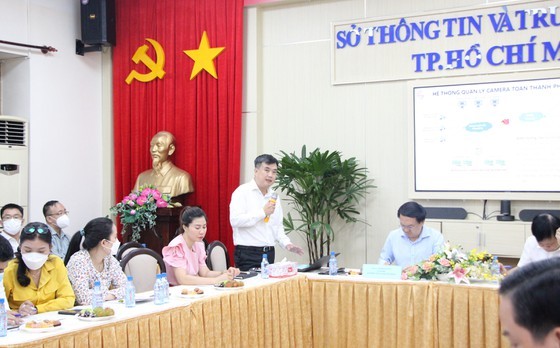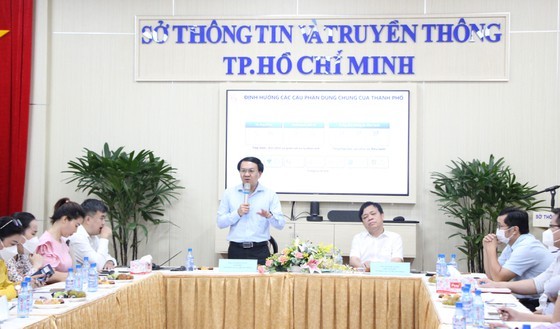
The most important content of this instruction session includes models and functions of an IOC in HCMC, directions for shared components of databases in HCMC, directions for data system construction.
DoIC stressed that it is necessary for HCMC to use shared databases in order to save operation costs, taken from the state budget. The current regulation states that there are 110 city-level and 40 district-level socio-economic indexes to be uploaded to be uploaded to the system.
As many districts and Thu Duc City have already established their own IOC, Deputy Director of DoIC Le Quoc Cuong reminded the local authorities that along with good technological solutions, there must be a corresponding operation mechanism and regulations, as well as frequent data updates to ensure precision. This means close monitoring of district leaders so that IOCs can first help management tasks, and then better serve citizens. That was wholeheartedly agree by all localities.

Director of DoIC Lam Dinh Thang once more stated that IOCs are an important factor of a digital government, since they are responsible for data collection and sharing to ensure smooth integration of information among state units for more effective administration and operation based on technology.
Therefore, he suggested all districts to own one IOC with regularly updated databases in 2022 to reduce labors in administrative tasks, while the whole city can access those valuable shared data for analysis and forecast tasks. He also promised to deliver support to needy localities.
The instruction session has helped all districts and Thu Duc City, plus state agencies, agree upon consistent methods to construct and manage IOCs so that data can be integrated and shared effortlessly, while financial waste can be avoided.
























